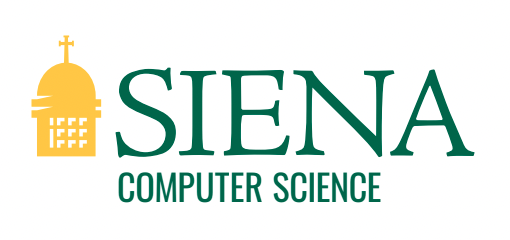Nov 6-9, 2024
ISCAP Conference
Cybersecurity, Computing Education, Data Analytics + Information Systems Applied Research
Scroll down for more details2024 ISCAP Conference
Cybersecurity, Computing Education, Data Analytics + Information Systems Applied Research
Formerly EDSIGCON + CONISAR
Nov 6-9, 2024
Baltimore, Maryland
Welcome from the Conference Chair
Fresh off of a great Conference in 2023, with record attendance, we look forward to the next opportunity for sharing research and teaching pedagogy at a conference known for its collegial group of Information Systems and Computing educators.
Our first submission deadline is June 17, for inclusion in the Proceedings, an invitation to submit for journal publication, and for Conference award consideration. Too soon? The second deadline, July 15, still gets you included in the Proceedings and an invitation to submit for journal publication.
Our 2024 Conference is set for November 6-9 in Baltimore, Maryland at the Sheraton Inner Harbor Hotel. Baltimore’s Inner Harbor is one of America's oldest seaports with a bustling mix of eateries, stores, museums and entertainment venues. Visit the National Aquarium, one of the largest in the U.S. or tour the Heritage Ships anchored in the harbor. Bring a guest to make the conference an even better experience.

Yours sincerely,
Paul D. Witman, Ph.D.
Conference Chair
On behalf of the 2024 Conference Team
and all members of ISCAP
Focus Areas
The Conference is organized around four main Focus Areas:
Computing Education
Information Systems & Computing: Model Curriculum, Innovation in Pedagogy, Impact of AI, and other topics
IS Applied Research
Information Systems Practice & Research: Cloud Computing, AI in Industry, IT Strategy, and other topics
Cybersecurity
Cybersecurity Education as well as Cybersecurity Research topics
Data Analytics
Analytics Education as well as Analytics Research
Submission Types
We offer five submission types for maximum flexibility for authors and organizers:
Research Papers
New research in any of the focus areas, based on appropriate methodology and literature review, as with any scholarly publication.
Teaching Cases
Teaching exercises and teaching case studies, in any Information Systems or technology topic area, with instructor notes.
Abstracts
Works in progress describing early stages of research, up to 500 words.
Panels
Panel of experts to discuss and answer questions about a particular topic of interest.
Workshops
Interactive sessions designed to engage the educator audience with new tools and methods for teaching and research.
Dates & Deadlines
Conference Dates Nov. 6-9
April
Paper system open for submissions
June 17
Deadline for award consideration for papers and cases. Early bird registration deadline. Deadline for panel & workshop proposals (for priority consideration).
July 31
Deadline for journal consideration for papers and cases. All papers submitted by this deadline are invited for submission to our journals.
August 15
Deadline for inclusion in proceedings for papers. Final deadline for panel & workshop proposals (if program space available).
August 31
Deadline for inclusion in proceedings for abstract.
October 1
Register for conference and hotel.
Journal Publication
Papers submitted before the second deadline will be consider for fast-track publication in ISEDJ, JISAR and CPPJ, which are double-blind peer-reviewed. See below
Flagship Journal
The best paper in pedagogy will be considered for fast-track publication in JISE
List of Topics & Keywords
This list illustrates the area and keywords of common past submissions. It is by no means a complete list of topics and is given to help you identify if your specific submission is a good match for the conference.
- artificial intelligence: LLMs, machine Learning, teaching with AI, NLP, academic integrity impact, and other topics, ...
- pedagogy: teaching cases, testing, performance monitoring, eBooks, simulations, ...
- curricula: model guidelines, learning objectives, assessment, major, minor, dual degree, ...
- data analytics: education in big data, data science, machine learning, predictive analytics, ...
- cyber security: education in mobile security, cybercrime, information privacy, policy issues,...
- teaching/learning environments: MOOCs, flipped, distance, synchronous, asynchronous, ...
- student recruitment: marketing, enrollment management, retention, ...
- academic quality: outcome assessment, accreditation, academic integrity, ...
- cross-disciplinary computing pedagogy: computing minors in business, science, engineering, medicine, arts, ...
- cloud computing: education in virtualization, enterprise cloud system, management, SaaS, ...
- degree programs: secondary, associate, UG, BS, BA, masters, Ph.D., ...
- graduate placement: industry relations, advisory groups, internships, apprenticeships, ...
- computing hardware: eduction in sustainability, nanotechnology, architecture, organization, networking, clouds, mobile, ...
- problem solving frameworks: education in modeling, relational, object, aspect, numerical, analogical, SWOT, ...
- project organization and methodologies: education in life cycles, team structure, RAD, Agile, Lean, XP, ...
- society: E-government, social media, privacy, cybercrime, cyber-medicine, ...
- faculty development: Ph.D. research, mentoring, scholarship, publication, professional service, ...
Schedule Overview
Registration
Lock Haven 1 and 2
Sessions
Welcome Reception
Welcome all! Go to Dinner with other attendees
Registration
Lock Haven 1 and 2
Sessions
Tour Historic Baltimore with other attendees
Sessions
Distinguished Educator Luncheon
ISCAP Annual Meeting
Dinner/Social
Best Paper Award Breakfast
Sessions
Conference Ends
Location
Sheraton Inner Harbor Hotel
Baltimore, Maryland
300 S Charles St, Baltimore, MD 21201
1 410-962-8300
Book soon due to a Baltimore Ravens home game on the Thursday night of our conference. The hotel will not extend our rate once our block is sold. You can cancel your reservation up to 72 hours before check-in without penalty.
Rate expires on Oct 4th at 6pm EST
Scroll for more info
per night
miles from Baltimore/Washington International Thurgood Marshall Airport
mile walk to Waterfront Promenade
Stay in the heart of downtown Baltimore at the Sheraton Inner Harbor Hotel, just moments from top attractions like the Inner Harbor, Camden Yards, and the National Aquarium. 24-hour fitness center and on-site dining at The Grille or Morton's The Steakhouse. Rooms and suites with harbor or city views.


Conference Team

Paul Witman
Conference Chair, ISEDJ Editor
, Panels
Tom Janicki
Conference Planner & Journal Publisher

David Woods
Papers Co-Chair, IS Education

Ernst Bekkering
Papers Co-Chair, IS Education

Dana Schwieger
Papers Co-chair, IS Applied Research

Peter Wu
Papers Co-chair, IS Applied Research

David Yates
Papers Chair, Cybersecurity

Art Ream III
Papers Chair, Cybersecurity

Kevin Mentzer
Papers Co-Chair, Analytics

Christopher Njunge
Papers Co-Chair, Analytics

Ira Goldstein
Teaching Cases Co-Chair

Michelle Louch
Teaching Cases Co-Chair

Mary Lind
Abstracts Co-Chair

Shawn Clouse
Abstracts Co-Chair

Mark Frydenberg
Exhibitors & Workshops Co-Chair

Eric Breimer
Conference Asst. Co-Chair (Workshops & Panels)

Anthony Serapiglia
CPPJ Co-Editor
& Member Fellowship Co-Coordinator
RJ Podeschi
Member Fellowship Co-Coordinator

Leigh Mutchler
Proceedings Editor

Michael Smith
Virtual Room Coordinator

Amy Connolly
Social Media Coordinator

Jennifer Breese
Social Media Coordinator

Jason Ferguson
Social Media Coordinator

Paul Zhang
JISE Editor

Scott Hunsinger
JISARA Editor

Jeff Cummings
CPPJ Co-Editor & ISCAP-EDSIG President
Featured Speaker
Lynne Clark
Acting Chief, Center for Cybersecurity Education, Innovation and Outreach

The Center for Cybersecurity Education, Innovation and Outreach is a division of the National Cryptologic University at the National Security Agency. The Center is responsible for management of the Centers of Academic Excellence in Cybersecurity (NCAE-C) program and the GenCyber outreach program, the NSA Cyber Exercise (NCX) and NSA Experiential Tours (NET) programs, and Visiting Professors.
In her twenty years at NSA, Lynne has worked in Operations Security, risk management and information assurance, and managed the Information Assurance Directorate personnel and recruiting programs. She is the recipient of the Meritorious Civilian Service Award, was twice awarded the Joint Meritorious Unit Award for special projects in support of the Department of Defense, and the National Intelligence Meritorious Unit Citation for support to the Intelligence Community.
Prior to joining NSA, Ms. Clark served in the U.S. Air Force with worldwide assignments in airspace management, radar operations and operations risk management; she retired at the rank of Lieutenant Colonel in 1999. Ms. Clark’s academic credentials include a Masters in Clinical Psychology from the Fielding Institute, and a B.A. in Community Development from Baldwin-Wallace College.
Sponsors
Sponsors & Exhibitors Information
This form includes all the information and instructions on how to become a sponsor and/or exhibitor.
Current Conference Sponsors
Registration
ISCAP Conference
| Item | Cost | |
|---|---|---|
Regular |
$450 |
$495 after Oct 1
|
Virtual |
$350 |
$125 Ph.D. or other students
|
EDSIG Fellow |
$350 |
$395 after Oct 1
|
EDSIG Fellow Retired |
$275 |
Regardless of date
|
Ph.D. or other students |
$275 |
Regardless of date
|
Additional Paper |
$100 |
Without co-author(s) registering
|
Guest Package |
$150 |
3 breakfasts, Wed. reception, Friday fun night.
|
Cancellations:
- May 1 - June 30 – full refund of all fees*
- July 1 - October 1 – 75%
- Oct 2 - October 15 – 50%
- No refunds after October 15
* Registration fee and any additional fees (second paper, guest package).
You may switch between the in-person conference and the virtual conference (or vice versa) until October 20 (as long as space permits), with the appropriate difference between the two registration modes ($100) either being due or refunded. All cancellations or changes must be in writing and sent to publisher@isedj.org.
Virtual Registration
ISCAP recognizes that participants may have limited ability to travel due to institutional restrictions or underlying health concerns. This year’s conference will have a limited virtual option for accepted papers. Authors will have the ability to present their work live, engage with peers who are at the conference site, and view/engage with other paper presentations from one breakout room (approximately 35 presentations). Accepted papers for the virtual option are eligible for awards, journal publications, and conference proceedings per the published deadline dates for the in-person conference.
During registration, authors will indicate whether they intend to attend the conference in-person or virtually. Virtual registrations must be requested by October 20. We will do our best to accommodate changes if space permits. Previous registrations can be changed from virtual to in-person or vice-versa. Those who change from virtual to in-person will be charged an additional $100. Those who change from in-person to virtual be refunded $100. Refer to the cancellation policy for specifics regarding refund procedures.
The number of virtual attendees will be limited and is at the discretion of the conference committee. The total number of virtual attendees will be determined by the virtual registration deadline, October 1.
Virtual presentations will occur between 9:00 am and 4:00 pm, Eastern Standard Time. A session chair will be present to coordinate virtual conferencing software and facilitate the in-person audience question and answer portion.















